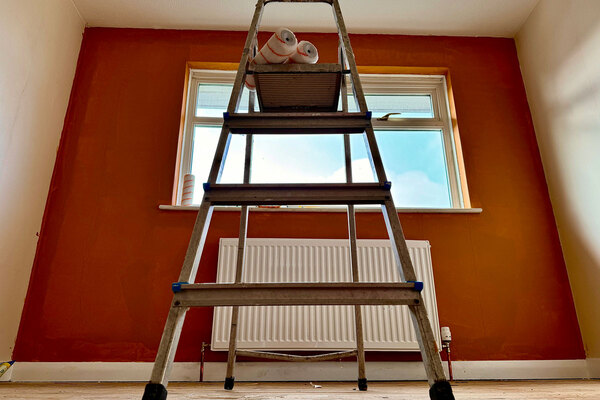You are viewing 1 of your 1 free articles
Peabody compensates residents left in ‘intolerable’ conditions after four severe maladministration findings
The Housing Ombudsman has ordered Peabody to pay out £11,000 in compensation following four findings of severe maladministration.

The watchdog’s investigation into these cases was focused on complaint-handling, adaptations and overdue repairs, with residents describing the conditions they were forced to live in as “horrific” and “intolerable”.
Housing ombudsman Richard Blakeway said Peabody, which manages more than 100,000 homes across the London area, had shown a “lack of urgency” in investigating complaints and instead continued to “prolong the distress” for residents.
A “significant” number of cases had been escalated to the watchdog, he added, indicating a need for “further learning and action”.
In one decision, Peabody was fined £5,053 after taking too long to investigate its handling of a resident’s repairs.
While the resident wanted the landlord to look at a complaint that originated eight years before raising it, Peabody said it could only look at cases raised with it within six months. However, it did not mention there was discretion there.
The tenant, whose leak was not resolved satisfactorily, described her living conditions as “horrible” and said damp and mould had destroyed personal items.
The housing association was told to pay out £3,768 in compensation to another incident when it took 14 months to repair a roof and a further year to install, which caused “significant distress” to residents, according to the ombudsman.
In a third case, Peabody was fined £1,750 after failing to deliver adaption works to a property, meaning a resident had to carry their severely disabled daughter up and down the stairs. The Brixton resident described the conditions as “intolerable”.
Peabody was also ordered to top up a previous compensation payment by £500 after mishandling a complaint about cladding to the extent that an MP intervened. In this instance, it meant that a response to the Worthing resident’s initial reports were only formally responded to 211 working days later.
Mr Blakeway said: “Throughout all of these cases there are examples of a lack of urgency or delays, giving residents the impression that the landlord has not treated their concerns with the importance it should have done.
“There are vulnerabilities within these reports that should have led to a more urgent response. However, the landlord repeatedly missed these opportunities and warning signs, continuing to prolong the distress for residents.
“Landlords should make sure that if works cannot proceed, or there are issues outside of its control, they need to be communicating effectively and regularly to seek out what support they can provide residents and what arrangements and adjustments can be made in the meantime.”
In its learning statement, Peabody apologised and acknowledged that “we let our residents down”.
The association said: “The overall handing of these complaints fell below the standard residents should expect from us. In all these cases, we have apologised and paid compensation. We have completed the adaptations and repairs in these homes where they needed to be done.
“Since these complaints were made, learning from the specific cases and ombudsman best practice, we have made considerable and wide-ranging improvements to our complaint-handling and record-keeping, as well as the way we do adaptations and repairs for residents.
“We have formed specialist, centralised complaints and record-handling teams who make sure that any issues are handled promptly. We have set up a separate group that specifically monitors and manages damp and mould cases to give them the specialist focus they need.
“All colleagues in complaints have completed the ombudsman’s complaint-handling code training, and we thoroughly review the ombudsman’s Spotlight reports and conduct self-assessments against them, encouraging a culture of continual learning and improvement.”
Peabody explained it has also reviewed its vulnerabilities policy and is looking at how it can adapt to provide the right support when someone may need adjustments or has additional needs.
The landlord added: “During our recent training on vulnerabilities, we used previous ombudsman reports to highlight where we can do better, ensuring every colleague learns from where we went wrong.
“Expert colleagues from our well-being teams have run sessions with our complaints team to help them understand what practical support is already available to help residents and meet their individual needs.
“We remain committed to using every opportunity to continue to learn from our mistakes and improve. It’s clear we needed to do better in all these cases.”
Sign up for our regulation and legal newsletter
Already have an account? Click here to manage your newsletters











